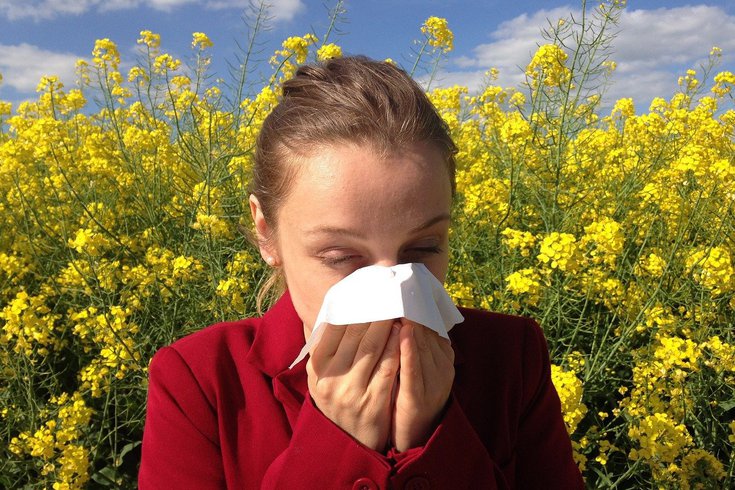
March 10, 2021
 Cenczi/Pixabay
Cenczi/Pixabay
When pollen counts are higher, researchers founds COVID-19 transmission increases 10% to 30%.
With warm weather slowly approaching and COVID-19 vaccinations increasing, many Philadelphia residents are dreaming of a more normal spring.
However, a new study suggests the coronavirus may spread more easily during allergy season due to increased pollen particles in the air.
The study, published in the journal Proceedings of the National Academy of Sciences, found that higher pollen counts are associated with increased COVID-19 infection rates.
Researchers tracked infection rates and pollen counts from 130 places in 31 countries. When pollen levels were higher, they found infection rates increased by 10% to 30%. Their study considered population density, the effects of lockdown measures, humidity levels and air temperature.
High pollen concentrations are known to cause a weaker immune response in the body's airways to respiratory viruses. Infected cells typically send out messenger proteins alerting other cells to boost their defenses. But when pollen particles are inhaled alongside viruses, the body produces fewer messenger proteins.
People with severe seasonal allergies also may be at a higher risk of contracting the virus, the study found.
Dr. Leonard Bielory, a Rutgers University allergy specialist who co-authored the study, told KMBZ that the nasal cavity inflammation caused by allergies could increase the possibility of contracting a viral infection because it might increase the number of cell receptors that the virus can latch onto.
People with severe allergies who are high-risk for COVID-19 should wear filter masks when pollen concentrations are high, researchers said.
"You cannot avoid exposure to airborne pollen," said German researcher Stefanie Gilles, the study's first author. "People in high-risk groups should, therefore, be informed that high levels of airborne pollen concentrations lead to an increased susceptibility to viral respiratory tract infections."
Allergy season spans from February to summer time in Philadelphia. Doing yoga, eating apples and blasting the AC can help reduce allergy symptoms, research shows.
Allergies, asthma and COVID-19 share some similar symptoms. Allergies typically present with itchy eyes or nose, sneezing, running nose, a wet cough and wheezing or tightness in the chest.
Asthma is a chronic condition that occurs when the lungs become inflamed and cause difficulty breathing, wheezing, coughing and tightness in the chest.
The most common symptoms of COVID-19 are fever, shortness of breath and dry cough, according to the Centers for Disease Control and Prevention. Headaches, chills, muscle pain and new loss of taste or smell are also symptoms.
Follow Hannah & PhillyVoice on Twitter: @hannah_kanik | @thePhillyVoice
Like us on Facebook: PhillyVoice
Add Hannah's RSS feed to your feed reader
Have a news tip? Let us know.